For additional information, write to:
Krishnamurti Foundation Trust, Ltd.,
Brockwood Park, Bramdean, Hampshire, England S024 OLQ
or
Krishnamurti Foundation of America
P.O. Box 1560
Ojai, CA 930241560
U.S.A.
Sources and acknowledgments can be found .
Series editor: Mary Cadogan
Associate editors: Ray McCoy and David Skitt
ON FEAR . Copyright 1995 by Krishnamurti Foundation Trust, Ltd., and Krishnamurti Foundation of American. All rights reserved under International and Pan-American Copyright Conventions. By payment of the required fees, you have been granted the non-exclusive, non-transferable right to access and read the text of this ebook on-screen. No part of this text may be reproduced, transmitted, down-loaded, decompiled, reverse engineered, or stored in or introduced into any information storage and retrieval system, in any form or by any means, whether electronic or mechanical, now known or hereinafter invented, without the express written permission of HarperCollins ebooks.
FIRST EDITION
Library of Congress Cataloging-in--Publication Data
Krishnamurti, J. (Jiddu), 18951986
On fear / J. Krishnamurti.1st ed.
p. cm.
ISBN 0-06-251014-2 (pbk.: alk. paper)
1. Fear. I. Title.
B5134.K753K756 1994
128'.3dc20
9419322
CIP
05  RRD(H) 20 19 18 17
RRD(H) 20 19 18 17
EPub Edition JULY 2013 ISBN: 9780062310262
There is fear. Fear is never an actuality; it is either before or after the active present. When there is fear in the active present, is it fear? It is there and there is no escape from it, no evasion possible. There, at that actual moment, there is total attention at the moment of danger, physical or psychological. When there is complete attention there is no fear. But the actual fact of inattention breeds fear; fear arises when there is an avoidance of the fact, a flight; then the very escape itself is fear .
Krishnamurtis Notebook
J IDDU K RISHNAMURTI was born in India in 1895 and, at the age of thirteen, was taken up by the Theosophical Society, which considered him to be the vehicle for the world teacher whose advent it had been proclaiming. Krishnamurti was soon to emerge as a powerful, uncompromising, and unclassifiable teacher, whose talks and writings were not linked to any specific religion and were neither of the East nor the West but for the whole world. Firmly repudiating the messianic image, in 1929 he dramatically dissolved the large and monied organization that had been built around him and declared truth to be a pathless land, which could not be approached by any formalized religion, philosophy, or sect.
For the rest of his life Krishnamurti insistently rejected the guru status that others tried to foist upon him. He continued to attract large audiences throughout the world but claimed no authority, wanted no disciples, and spoke always as one individual to another. At the core of his teaching was the realization that fundamental changes in society can be brought about only by a transformation of individual consciousness. The need for self-knowledge and understanding of the restrictive, separative influences of religious and nationalistic conditionings was constantly stressed. Krishnamurti pointed always to the urgent need for openness, for that vast space in the brain in which there is unimaginable energy. This seems to have been the wellspring of his own creativity and the key to his catalytic impact on such a wide variety of people.
Krishnamurti continued to speak all over the world until he died in 1986 at the age of ninety. His talks and dialogues, journals and letters have been preserved in over sixty books and hundreds of recordings. From that vast body of teachings this series of theme books has been compiled. Each book focuses on an issue that has particular relevance to and urgency in our daily lives.
W E ARE GOING to talk over together the question of fear. But before we go into that I think we should learn the art of hearing. How to listen, not only to the speaker but to listen to those crows, listen to the noise, listen to your favourite music, listen to your wife or husband. Because we dont actually listen to people, we just casually listen and come to some kind of conclusion, or seek explanations, but we never actually listen to what somebody else is saying. We are always translating what others are saying. As we talk over together the very complex problem of fear, we arent going to get trapped in too many details but will go into the whole movement of fear, and how we understand it, either verbally or actually. There is a difference between the comprehension of words and the comprehension of the actual state of fear. We are apt to make an abstraction of fear, that is, to make an idea of fear. But we never listen, apparently, to the voice of fear that is telling its story. And we are going together to talk about all that.
O NE ASKS WHY human beings, who have lived on this earth for million of years, who are technologically intelligent, have not applied their intelligence to be free from this very complex problem of fear, which may be one of the reasons for war, for killing one another. And religions throughout the world have not solved the problem; not the gurus, nor the saviours; nor ideals. So it is very clear that no outside agencyhowever elevated, however much made popular by propagandano outside agency can ever possibly solve this problem of human fear.
You are inquiring, you are investigating, you are delving into the whole problem of fear. And perhaps we have so accepted the pattern of fear that we dont want even to move away from it. So, what is fear? What are the contributory factors that bring about fear? Like many small streams, rivulets that make the tremendous volume of a river; what are the small streams that bring about fear? That have such tremendous vitality of fear. Is one of the causes of fear comparison? Comparing oneself with somebody else? Obviously it is. So, can you live a life comparing yourself with nobody? You understand what I am saying? When you compare yourself with another, ideologically, psychologically, or even physically, there is the striving to become that; and there is the fear that you may not. It is the desire to fulfil and you may not be able to fulfil. Where there is comparison there must be fear.
And so one asks whether it is possible to live without a single comparison, never comparing, whether you are beautiful or ugly, fair or not fair, approximating yourself to some ideal, to some pattern of values. There is this constant comparison going on. We are asking, is that one of the causes of fear? Obviously. And where there is comparison there must be conformity, there must be imitation. So we are saying that comparison, conformity, and imitation, are contributory causes of fear. Can one live without comparing, imitating, or conforming psychologically? Of course one can. If those are the contributory factors of fear, and you are concerned with the ending of fear, then inwardly there is no comparison, which means there is no becoming. The very meaning of the comparison is to become that which you think is better, higher, nobler, and so on. So, comparison is becoming. Is that one of the factors of fear? You have to discover it for yourself. Then if those are the factors, if the mind is seeing those factors as bringing about fear, the very perception of those ends the contributory causes. If there is a physical cause that gives you a stomachache, there is an ending of that pain by discovering the cause of it. Similarly, where there is any cause there is an ending.

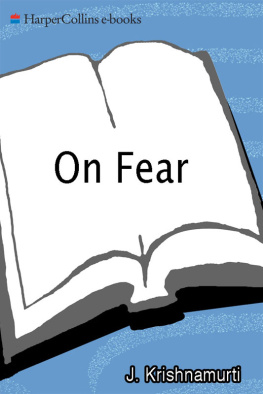







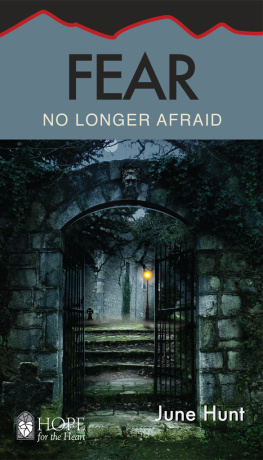
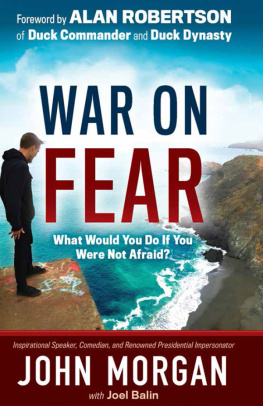
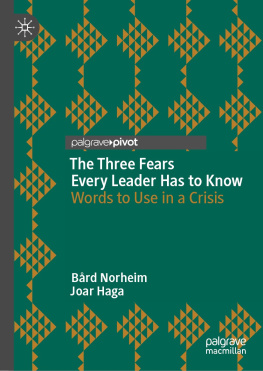
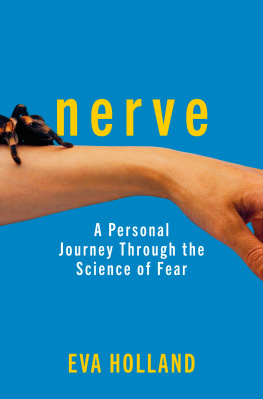
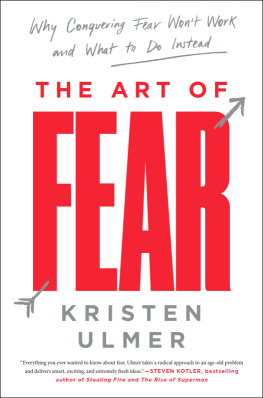
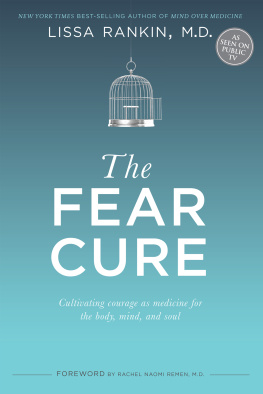
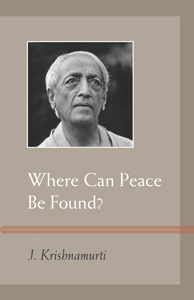

 RRD(H) 20 19 18 17
RRD(H) 20 19 18 17